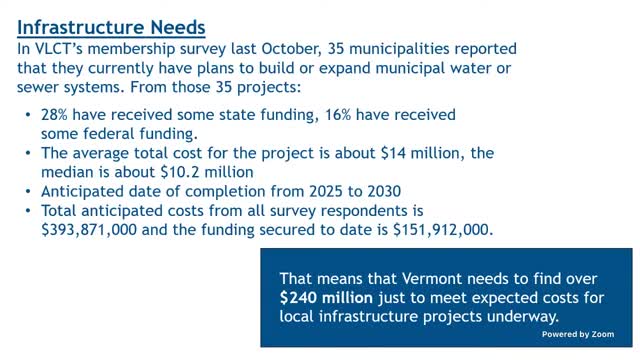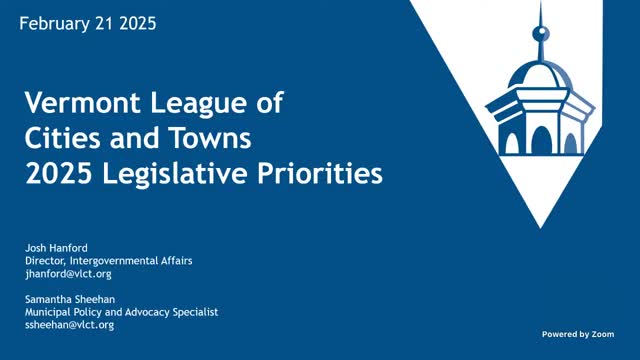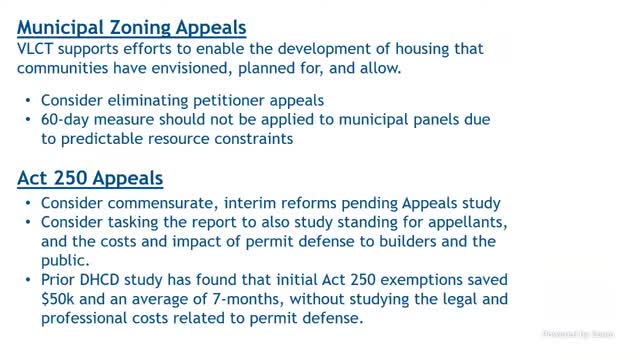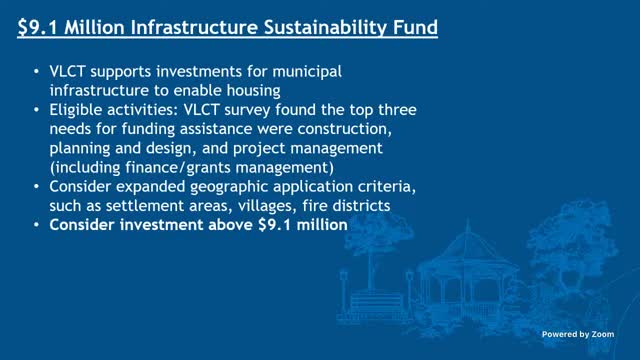Article not found
This article is no longer available. But don't worry—we've gathered other articles that discuss the same topic.

League says state land bank could help redevelopment but warns of trade-offs for municipal budgets

Municipal leaders tell House committee Vermont needs new tools, hundreds of millions for infrastructure to support housing

Municipal league backs limiting appeals, supports options for adopting state preemptions and record-based review

